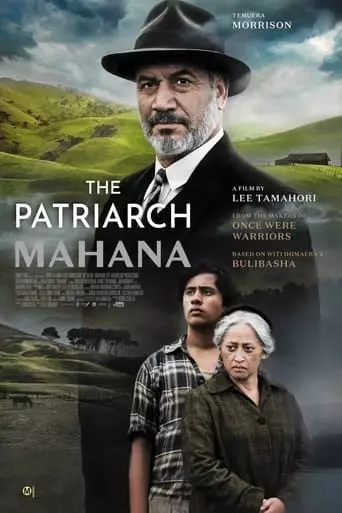
Mahana (2016) Watch Online Free
It is the 1960s. Two Maori families, the Mahanas and the Poatas, make a living shearing sheep on the east coast of New Zealand. The two clans, who are bitter enemies, face each other as rivals at the annual sheep shearing competitions. Simeon is a 14-year-old scion of the Mahana clan. A courageous schoolboy, he rebels against his authoritarian grandfather Tamihana and his traditional ways of thinking and begins to unravel the reasons for the long-standing feud between the two families. Before long, the hierarchies and established structures of the community are in disarray because Tamihana, who is as stubborn as he is proud, is not prepared to acquiesce and pursue new paths. The story is adapted from Witi Ihimaera’s novel Bulibasha: King of the Gypsies.
Mahana is a 2016 New Zealand drama directed by Lee Tamahori, adapted from Witi Ihimaera’s novel Bulibasha: King of the Gypsies. Set in the 1960s, the film delves into the complexities of family dynamics, cultural identity, and the impact of historical events on personal relationships.
Plot Summary
The narrative centers on two Māori families, the Mahanas and the Poatas, whose longstanding rivalry traces back to a romantic entanglement between Tamihana Mahana and Ramona Poata. By the late 1950s, Tamihana has established himself as the patriarch of the Mahana clan, overseeing a prosperous sheep-shearing business in the Gisborne District. His grandson, Simeon, however, feels constrained by Tamihana’s authoritarian leadership.
Simeon’s curiosity about his family’s history leads him to uncover a photograph of Ramona and Rupeni Poata, suggesting a deeper connection than previously acknowledged. This discovery prompts Simeon to question the narratives upheld by his family, particularly the animosity between the Mahanas and the Poatas. His inquiries and actions, including a courageous speech in court and a clandestine romance with Poppy Poata, challenge the established order and bring to light suppressed truths.
As the story unfolds, it is revealed that Tamihana’s rise to power was marred by coercion and violence, including the forced marriage of Ramona. His terminal illness and subsequent death catalyze a series of events that lead to reconciliation between the feuding families. Simeon’s role in unveiling the truth and fostering understanding underscores the themes of forgiveness and the quest for personal identity.
Themes and Analysis
Mahana explores several profound themes:
Impact of the Movie
Mahana has been recognized for its compelling storytelling and strong performances, particularly by Akuhata Keefe as Simeon. Critics have noted its emotional depth and the way it sheds light on Māori culture and history. However, some reviews suggest that the film’s simplicity and romanticized portrayal may not resonate with all audiences.
After viewing Mahana, audiences are likely to experience a range of emotions:
In summary, Mahana is a film that offers both emotional depth and cultural insight, making it a worthwhile watch for those interested in stories of personal and communal transformation.
